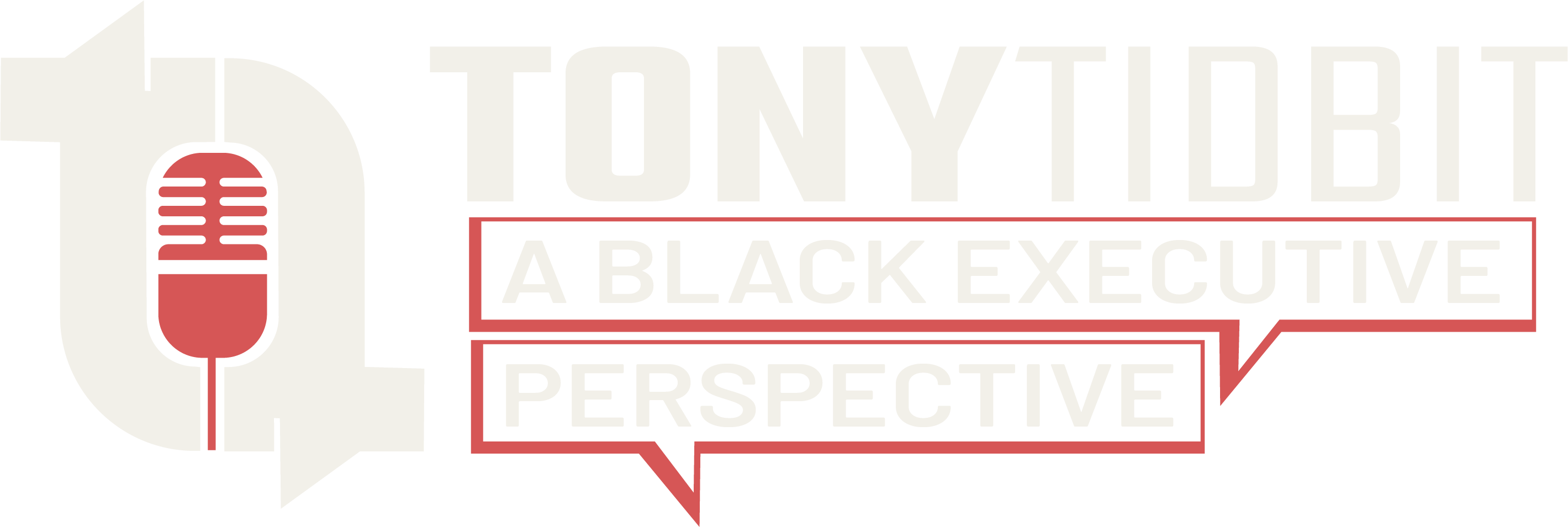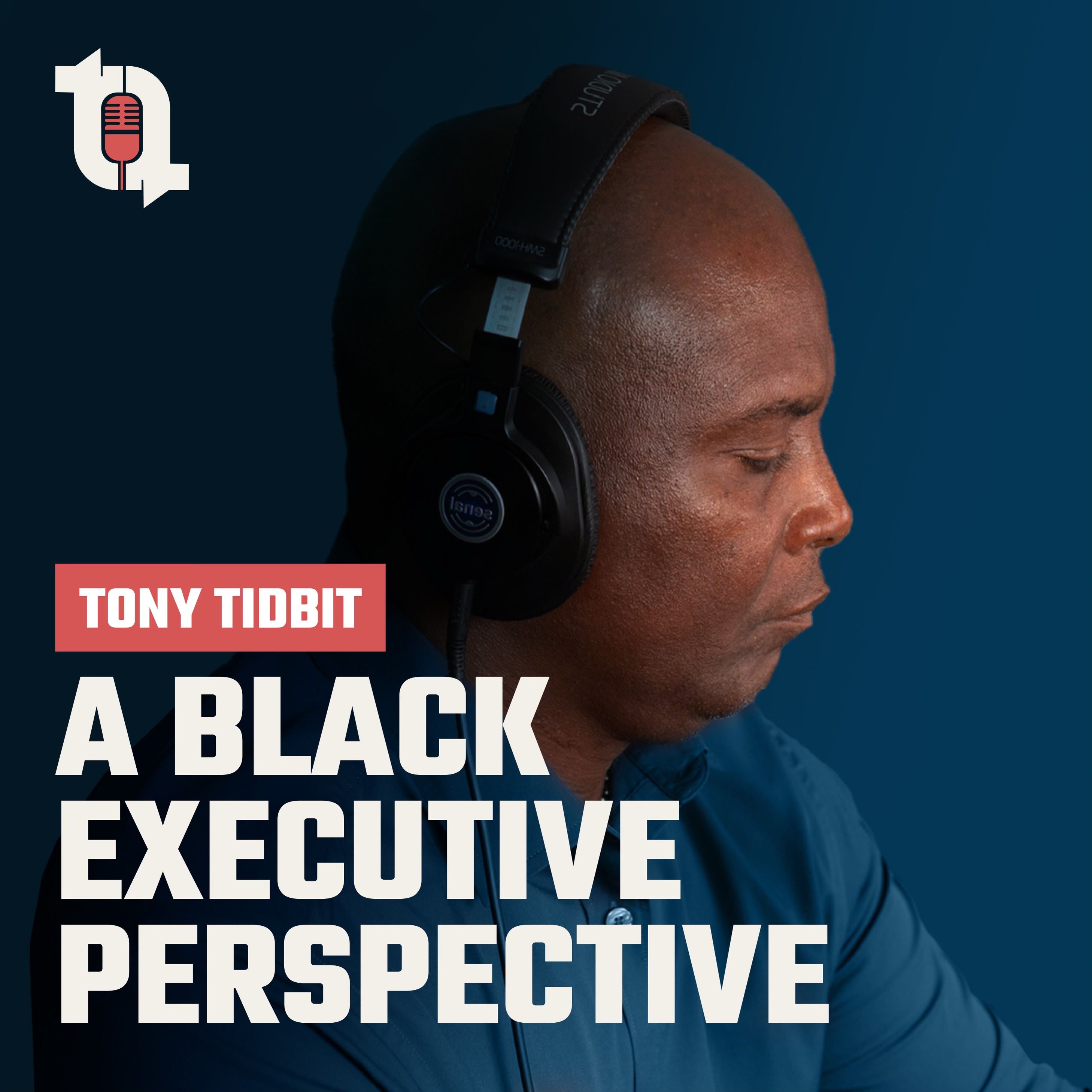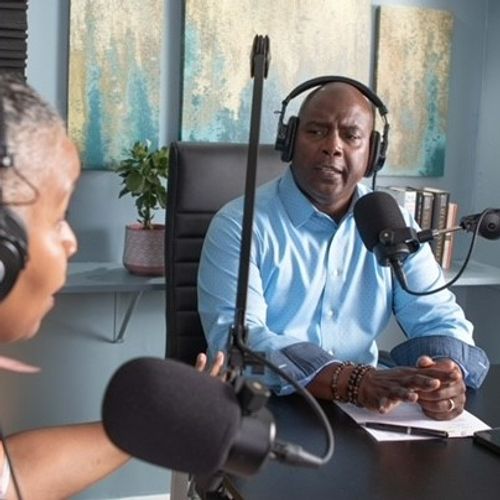Dr. Nsenga Burton on Empathy and Judge King's Story
Episode Title:
Episode Audio Link: https://podcast.ablackexec.com/episode/Dr. Nsenga Burton on Empathy and Judge King's Story
Episode Video Link:
In this episode of 'Need to Know,' Dr. Nsenga Burton discusses the significant incident involving Judge Kenneth King in Detroit, where he ordered an at-risk teen to be shackled for falling asleep during a court talk. Dr. Burton delves into the root causes of the teen's behavior, revealing the child's homelessness and food insecurity, and emphasizing the importance of empathy and understanding when dealing with young people. The discussion highlights the detrimental effects of punitive measures on at-risk youth and advocates for more compassionate and educative responses from authority figures.
▶︎ In This Episode
- 00:00: Introduction and Welcome
- 00:20: Case Overview: Judge Kenneth King
- 01:24: Understanding the Teen's Situation
- 02:24: Empathy for Youth: A Broader Perspective
- 03:52: Lessons from the Incident
- 06:23: Final Thoughts and Conclusion
🔗 Resources
Links and resources mentioned in this episode:
🔔 Listen and Subscribe
Listen to this episode and subscribe for future updates
subscribe to A Black Executive Perspective podcast on
- YouTube Podcasts
- Apple Podcasts
- Spotify Podcasts
- Amazon Music
- Other platforms or by searching "TonyTidbit"
if you like what we're doing and would like to support us, here's some ways you can help us continue the uncomfortable conversations that drive change
- subscribe to our newsletter
- give us up to a 5 star review on Apple Podcasts
- share an episode with a friend, family member or colleague
🗣️ Follow @ablackexec
follow us across social media @aBlackExec
⭐️ Follow @TonyTidbit
follow Tony across social media @TonyTidbit
This episode was produced by TonyTidbit ™ . Copyright © 2024 A BLACK EXECUTIVE PERSPECTIVE LLC. All rights reserved. No part of this podcast may be reproduced without prior written permission. For permissions, email podcast@ablackexec.com .
Transcript
A black executive perspective now presents need to know
2
:with the award winning hyphenated Dr.
3
:Nsenga Burton.
4
:Dr.
5
:Burton, what do we need to know?
6
:Dr. Nsenga Burton: Good morning and
welcome to need to know with Dr.
7
:Nsenga Burton.
8
:I am Nsenga and I am
happy to be here today.
9
:So today I want to talk to you about
a case that's going on in Detroit
10
:involving judge Kenneth King.
11
:Judge Kenneth King was giving up
his time and was Talking to at risk
12
:youth about various issues going on
with the court system and things of
13
:that nature when one of the teens
Fell asleep when she fell asleep.
14
:He ordered her to be shackled and
put into an inmate's uniform and
15
:threatened her And he said he did
this because she had a bad attitude.
16
:All of this to say, um, things did not go
well for her that day, which was awful.
17
:And things did not go
well for him after that.
18
:Uh, he has been, his
docket has been suspended.
19
:And, uh, he was also a professor
at Wayne State University where
20
:he now has been, uh, suspended.
21
:Uh, he was an adjunct there.
22
:I've worked in education for 23 years.
23
:I doubt he'll be picked back up.
24
:And all of this happened because of Judge
King's unwillingness to understand the
25
:population with which he is serving.
26
:So, this young woman, it turns out,
young teenager, I'm sorry, she is
27
:a girl, turns out, is unhoused.
28
:So, she's had housing insecurity.
29
:So, she didn't fall asleep because she was
disinterested, or she wasn't, didn't want
30
:to be there, or anything of that nature.
31
:But she is, Unhoused
along with her family.
32
:So when you are housing insecure when
you're food insecure all of those
33
:things that affect large populations
of children in this country Um,
34
:then, you know things happen.
35
:They're indicators of that happening
whether it's an education gap Whether
36
:it's you falling asleep in class, whether
it's you Uh not attending school on a
37
:regular basis because you have other
things that you have to attend to When
38
:you are caring for yourself in this case,
she is not she lives with her mother
39
:Um But when you are facing those kinds
of adult trials and tribulations at a
40
:young age, sometimes you do behave in a
way that is not welcome by those who are
41
:around you, but it should be understood.
42
:So what you need to know is
that children deserve empathy.
43
:The first response to what
you would call inappropriate
44
:behavior should not necessarily
be one of punishment or attack.
45
:It's important to understand
where people are coming from.
46
:I hear people talk a lot about students
and young people being worthless.
47
:These are, this is a language that
people use when they're talking
48
:about our future generation.
49
:There's snowflakes, they're
soft, all of the things.
50
:They're not ready for anything.
51
:You know, they can't handle anything.
52
:They're mentally unstable,
all of the things and people
53
:in my particular generation.
54
:We had all of those things,
but they were either beat out
55
:of us or punished out of us.
56
:Or you were in jail as a teenager
or 21 year old, um, or in the system
57
:in some way, shape or form for many
people who were in my generation.
58
:So there wasn't empathy, you
know, it was black and white.
59
:Either you stayed awake and you fell
asleep, you paid attention or you didn't.
60
:You did well in school.
61
:You didn't.
62
:No one was really thinking about
the causes, the root causes, and
63
:we had all of the root causes.
64
:Our parents had all the root causes,
so forth and so on, particularly
65
:people, uh, who come from historically
disenfranchised backgrounds.
66
:So when you fast forward to 2024,
and you have young people who are in
67
:your care, and that is what she was.
68
:She was in his care.
69
:And you see that they are going,
uh, in the, which you would say
70
:maybe the wrong direction, falling
asleep, which is not acceptable.
71
:It isn't.
72
:Um, and even have an attitude,
which is not acceptable.
73
:It isn't.
74
:I think you need to know that that is
a teachable moment, a teachable moment,
75
:meaning that you can demonstrate empathy.
76
:At that time, you don't have to always,
you know, throw down the gavel, uh, pun
77
:intended, uh, you don't always have to
make a sacrificial lamb out of somebody
78
:so that other people don't do it.
79
:You don't have to embarrass
or humiliate people.
80
:That was a common practice,
um, in our communities and it
81
:still is in many instances.
82
:Um, it's not really necessary.
83
:It is not helpful.
84
:You know, this young girl now has PTSD and
she's afraid of the court system, which
85
:should be of service and a benefit to her.
86
:That's the exact opposite
of why she went there.
87
:Um, and now, you know, her, her mother
and others are seeking legal remedies
88
:against this judge whose life has
been turned upside down over this
89
:one that we know of bad decision.
90
:So, I think there are lots of lessons
here, but the biggest one, I think,
91
:is that children deserve empathy.
92
:They are imperfect because
they are imperfect, and this is
93
:someone who taught for 23 years.
94
:Because they are imperfect because
their brains are still forming.
95
:You have to think about them in that
way, because they are young, because
96
:you cannot assume that they all have
the same level of guidance that you had.
97
:You can't assume that they have the
same upbringing as you, you know,
98
:when the covert hit, and I was a
professor at Emory University, I
99
:learned that some of my students
in my class were housing insecure.
100
:And some of them had to
drive to restaurants to get
101
:wifi to take their classes.
102
:You wouldn't have known that prior to
this, because they just blended in.
103
:So you just never know what's
going on in someone's life.
104
:Um, so you should choose kindness and
when you have the opportunity to have a
105
:teachable moment, and I think that's what
Judge King forgot, you know, um, I don't
106
:want to demonize him by this one issue.
107
:I'm sure he's done great things in life.
108
:There's a reason why he was chosen
to speak to the kids, all of those
109
:things, but choosing empathy.
110
:Will not bring harm to you.
111
:Um, but when you decide to go
overboard or, you know, line step or
112
:just really, um, humiliate someone,
especially a young person, um, then
113
:you need to know there probably will be
consequences cause it is a different day.
114
:So, you can say what you will, you
can talk down about our students
115
:and about, um, our young people,
but ultimately they are here.
116
:They are who they are.
117
:They have had significant challenges.
118
:I mean, Covid alone is a major challenge.
119
:Um, so I just say that you need to know.
120
:To lead with empathy, particularly
when it comes to our young people.
121
:I'm not saying be a pushover.
122
:I'm not saying, you know, don't have
boundaries or rules or integrity.
123
:I'm not saying any of that.
124
:I'm saying teach, but use
that as a teachable moment.
125
:A moment to say, listen, I
understand you're really tired.
126
:Why don't you go and
take a walk and wake up?
127
:If you don't think you can
wake up, you might want to sit
128
:outside because it's disruptive.
129
:That's a different type
of response, right?
130
:So that you're still putting your
boundaries in place, letting them know
131
:that the action is wrong, but also giving
them an alternative to what they can do.
132
:And making the choice, there's then
they have to make the decision if they
133
:make the decision to leave this on them.
134
:If they make the decision to stay,
they know what the requirements are.
135
:They fall asleep again.
136
:And then you go off and they'll
understand why, but, um, I just think
137
:you need to know to leave with empathy.
138
:And I think that people in
my generation need to know.
139
:That you will be judged
and punished harshly.
140
:Cancel culture is real.
141
:You could spend your entire
life doing wonderful things.
142
:And it only takes one incident to
change the trajectory of your career
143
:and of your life, and to diminish the
wonderful legacy that you have built.
144
:So be mindful of that as well.
145
:So without further ado, this is Dr.
146
:Nsenga Burton for the need to know,
please join us next week for a
147
:black executive perspective podcast.
148
:I'll see you next week,
149
:BEP Narrator: a black
executive perspective.





